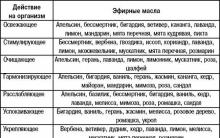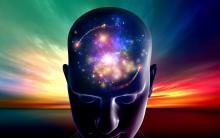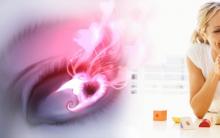13.12.2017 Narcologist Raisa Fedorovna Kovalchuk 2
Consequences and complications of drinking
Alcohol intake threatens the development of a number of factors that cause physiological and psychological disorders. The consequences of binge are reflected in the work of all systems of vital activity of the human body.
The most common consequence of drinking alcohol is a hangover. After drinking, it is expressed in the following symptoms:
- headache;
- tremor;
- nausea and vomiting;
- disorders of the gastrointestinal tract and other signs.
In addition, the patient often feels dizzy.
A hangover after binge lasts from several days to several months, depending on the duration of the disorder and the general condition of the body.
Hangover syndrome after binge is caused by severe intoxication of the body. Therefore, sorbents are taken during treatment. Also, for the purpose of detoxification, gastric lavage is performed or droppers are prescribed to purify the blood (for example, Reamberin).
 Preparations containing aspirin, which removes the main number of hangover manifestations, can also restore the normal state. Symptoms can last for days, in some cases longer. A person will feel bad while there is alcohol or its decay products in the body.
Preparations containing aspirin, which removes the main number of hangover manifestations, can also restore the normal state. Symptoms can last for days, in some cases longer. A person will feel bad while there is alcohol or its decay products in the body.
withdrawal syndrome
The condition after binge, which occurs in the second and third stages of alcoholism, is synonymous with withdrawal syndrome, in this case alcohol. With the manifestation of the syndrome, there may be complaints of the following nature:
- dizzy;
- be sick;
- vomits;
- shaking as if chilly.
Withdrawal syndrome lasts in the first stages of 1-2 days, with progressive alcoholism 6-10 days.
Delirium tremens
In medicine, delirium tremens is called alcoholic delirium. It occurs if alcohol dependence lasted 5-10 years, more often in men and consists in toxic damage to the brain.
Delirium tremens after binge is expressed in the appearance of:
- hallucinations;
- tremor;
- panic attacks;
- motor excitation.
Symptoms of delirium tremens appear after drinking a few days in a sober state.
The consequences of delirium tremens after binge are very dangerous for the reason that there are no guarantees for a full recovery.
The most dangerous of them are:
- the transition of delirium into a chronic form;
- clouding of consciousness, development of various forms of psychosis;
- coma;
- cirrhosis of the liver;
- cerebral edema.
Delirium tremens lasts, depending on the form, from several hours to several days. Its signs are characteristic of alcoholic psychoses, most of all affect the lesions of the central nervous system.
You can avoid delirium tremens after binge by seeking medical help. Narcologists do not recommend abruptly stopping drinking alcohol, since in this case the development of the pathology in question is most likely. Narcological clinics take a person out of a state of binge medication with minimal consequences for the body. Drunkards are people who drink alcohol, even in small quantities, on a daily basis.
Beer drinking is no less dangerous, as it leads to alcoholism. In addition, beer, in addition to ethyl alcohol, contains a decay product of hops - cadaverine, in other words, cadaveric poison.

It is scary to imagine the level of intoxication of the body during poisoning with cadaverine.
Pain syndrome
Alcohol tends to cause pathologies of all body systems. The most striking expression of changes in the work of the body is the pain syndrome.
The first organ that interacts with alcohol is the stomach. Ethyl alcohol, which is contained in alcohol, damages the mucous membrane, resulting in severe stomach pain. Hydrochloric acid begins to irritate the cells of the stomach, which causes severe pain in the epigastric region. You need to know what you can do if your stomach hurts. If pain appears after drinking alcohol, then you can take antacid, enveloping agents that will reduce the level of acid and protect the walls of the stomach from irritation. In this case, it is necessary to completely abandon alcohol.

The liver hurts after drinking because in the process of processing a large amount of alcohol, the liver cells begin to die. In addition to pain, a symptom such as vomiting of bile may appear.
The consequences of liver pathology can be terrible:
- fibrosis;
- cirrhosis;
- hepatitis;
- in the worst case, death.
Whether the function of the liver can be restored, only a complete diagnosis will show. Increase the chances: refusal of alcohol and timely initiation of therapy.

If the kidneys hurt after drinking, this indicates that the organ is not able to perform its function or a pathology has developed. As a result of impaired kidney function, dark urine may appear.
Dark urine may indicate inflammatory diseases or disorders of water-salt metabolism. There can be many reasons for darkening, but the main one is kidney poisoning with toxins, because this organ is a filter in the processing of ethyl alcohol. Orange urine is a sign of liver pathology, because it indicates the presence of bilirubin in the urine. Not timely elimination of the problem can cause kidney failure.
Eyes hurt after drinking due to several factors:
- alcohol increases the viscosity of the blood, so blockage of small capillaries is possible;
- jumps in intracranial pressure or the fundus of the eye, which accompany dizziness, headaches;
- the presence of methanol in alcohol, which causes vision loss.
To get rid of these manifestations, you need to contact an ophthalmologist, take blood-thinning medications (aspirin), and protect your eyes from stress.

Pain in the lumbar region is a very dangerous symptom. Alcohol leaches potassium and calcium from the body, which are the basis in the structure of muscles and bones.
As a result, the spine begins to hurt when muscle atrophy occurs, against the background of inhibited protein metabolism. Another option for lower back pain may be the development of post-alcoholic polyneropathy.
Effects of alcohol on the cardiovascular system
Alcohol has a detrimental effect on the cardiovascular system. After binge, the heart hurts, as it works for wear and tear. Pain is accompanied by other symptoms: heart rhythm disturbance and shortness of breath.
Treatment in this case can only be advised by a doctor. Because to cope with this problem on your own means risking not only health, but also life. Before the patient is helped, it is necessary to stop taking alcohol and, if possible, cleanse the body of it (washing, sorbents, detoxicants).

High blood pressure after drinking is another violation of the cardiovascular system. It is especially common in people with hypertension. Pressure can rise even from small doses due to the fact that the blood becomes thicker, there is a blockage of the capillaries, and more pressure is exerted on the walls of large vessels. High blood pressure is a risk for the development of myocardial infarction, stroke.
Antihypertensive drugs (Captopril) will help reduce blood pressure after binge. They will help lower blood pressure, as well as antispasmodics and blood-thinning drugs.

The decrease should take place smoothly, then serious consequences for the body will be excluded.
Complications from the CNS
Strokes are of different etiologies, caused by numerous reasons. One such reason is alcoholism. Alcohol adversely affects the vessels of the brain, as a result of which rupture and hemorrhage can occur.
For persons who are in a binge, microstrokes can be especially dangerous. Signs of a microstroke are very similar to those of a hangover:
- headache;
- dizziness;
- nausea;
- confusion;
- slurred speech;
- loss of orientation in space.

Epilepsy
Seizures can be of a different nature. Epilepsy, developed as a result of alcoholism, most often manifests itself in the form of an epileptic seizure. This form of brain disease is a serious complication that is difficult to cure or stop.
It develops in cases where binges last more than 3 days and there are short intervals between them. Epilepsy is typical for alcoholism with an experience of 5 to 10 years. Irreversible brain damage can only be prevented by refusing to drink alcohol and restoring the body in a specialized clinic.  Signs of an epileptic seizure
Signs of an epileptic seizure
psychoses
Psychotic disorders are one of the most common consequences of binge drinking. In addition to delirium tremens (alcoholic delirium), the following types of psychoses are distinguished:
- Korsakovsky;
- Alcoholic pseudoparalysis;
- Acute alcoholic psychosis.
Psychotic disorders can replace each other. Common manifestations of all types of psychosis are:
- mood swings;
- alcoholic depression;
- memory impairment;
- hallucinations;
- panic attacks.
Hallucinations after binge - a frequent occurrence, there are several types:
- auditory;
- visual;
- tactile.
They are a sign of prolonged drinking and serious mental disorders.
Psychoses disrupt the work of not only the central nervous system, but also the peripheral nervous system. Patients suffering from alcoholic psychosis become asocial, lose the ability to think normally, and cannot absorb new information. The withdrawal from the state of psychosis is carried out with the use of psychotropic drugs.  Nervous systems
Nervous systems
Restoration of the body after binge consists in the complete rejection of bad habits. It is necessary to remove toxins from the body, as well as restore the work of all vital systems.
Accelerate the process of playing sports, observing diets and sleep. How to get rid of addiction will be explained by narcologists in any clinic. The fight against drunkenness is conducted anonymously, the prescribed therapy is agreed with the patient or caregiver.
Sleep disorders
There is no sleep after binge, because it reflects the work of the nervous system. Insomnia after drinking is another type of withdrawal syndrome. In the early stages, a person cannot fall asleep or does not sleep soundly. As the syndrome progresses, nightmares may begin.
Nightmares are terrible, terrible dreams, one of the types of visual hallucinations. To fall asleep easily and quickly, and to sleep soundly throughout the night, you can take light sedatives before going to bed.
Seizures and tremors
Convulsions after binge may indicate the development of alcoholic epilepsy. Brings together arms and legs with constriction in mice. Most often, after a long binge, convulsions occur in an unconscious state. Convulsions last 2-3 minutes. In the future, severe pain in the areas of the limbs may remain.
After drinking, a tremor of the limbs may appear. Hand shaking is associated with a violation of the interaction of motor nerves. Trembling is a lack of coordination that occurs during a hangover. You can get rid of shaking limbs with the help of complex therapy, which is aimed at restoring the working capacity of the nervous system.
Trembling will pass gradually after treatment, to achieve a better effect, vitamins, sedatives, preparations containing magnesium are prescribed.
Numbness of body parts
Numb legs and arms due to impaired blood circulation. The symptom proceeds with the appearance of pain, tingling, coldness and blueness in the extremities, may be a sign of:
- stroke
- thrombosis;
- neuropathy and other serious diseases.
Temperature
The temperature after binge most often rises, indicating intoxication of the body. Due to the increase in body temperature, metabolic reactions are accelerated in the body, as a result of which a large amount of heat is released through sweat. Profuse sweat is a common hangover symptom. Weekly drinking can cause a feeling of heat and heavy sweating. In this case, the sweat will be smelly, since violations of secretion are associated with improper functioning of other organs.
A symptom of profuse sweating after binge is a sign of the development of hyperhidrosis. This disease disrupts the normal functioning of the sweating system. A person sweats, loses a lot of fluid, which leads to disruption of the cardiovascular and urinary systems.
hiccup
Alcohol intoxication can cause involuntary contractions of the diaphragm muscles, which manifest as an unpleasant symptom. Hiccups that occur after drinking alcohol warns of the development of addiction.
Hiccups can last for hours, preventing a person from talking, eating, sleeping. The hiccuping person should know that the symptom in question is a sign of a dangerous disease - alcoholic polyneuritis.
You can prevent hiccups with water, exercises for the diaphragm, inducing a gag reflex, and in severe cases, medication.











Aromatherapy - Essential oils: table of properties and uses
Cleansing the energy of the apartment with a church candle
Essential oils for aromatherapy: properties, uses and contraindications
Weakness in the body and drowsiness: causes in adults
How to clean an apartment from negativity with a church candle